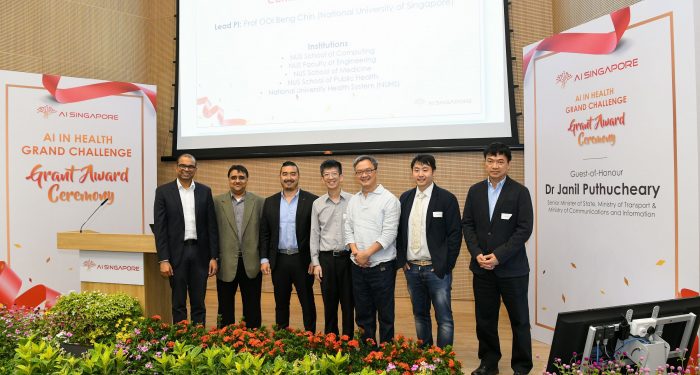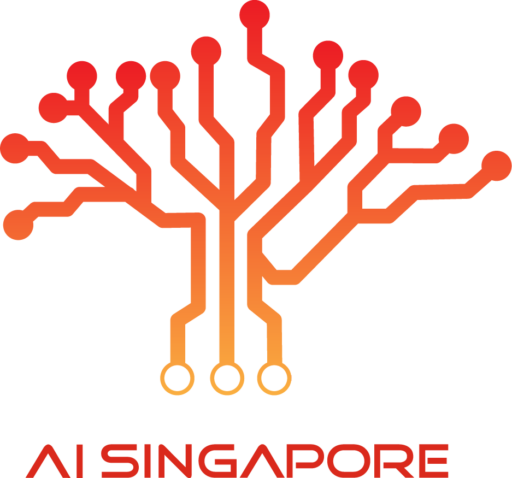Explainable AI as a Service for Community Healthcare

This proposal focuses on advanced AI with prototype devices built for deployment and testing in a community setting. This will:
- Apply rigour in data science and through AI as a service, allow AI results to be used in precision medicine, preventive advices and automatic lifestyle coaching such as food logging
- Help in designing a community deployable device for patients with chronic diseases
Click here to read about the team’s progress.
Lead Principal Investigator: Professor Beng Chin Ooi (NUS)
Co-Principal Investigators:
Dr Ngiam Kee Yuan (NUHS)
Professor Dean Ho (NUS)
Professor Wong Lim Soon (NUS)
Associate Professor Xiao Xiaokui (NUS)
Associate Professor Ng Teck Khim (NUS)
Assistant Professor Bryan Low Kian Hsiang (NUS)
Assistant Professor Wang Wei (NUS)
Professor Lim Chwee Teck (NUS)
Associate Professor Qiu Anqi (NUS)
Professor Li Haizhou (NUS)
Associate Professor Mehul Motani (NUS)
Associate Professor Vincent Lee Cheng Kuo (NUS)
Assistant Professor John Ho SY (NUS)
Assistant Professor Edward Chow Kai-Hua (NUS)
Assistant Professor Benjamin Tee Chee Keong (NUS)
Assistant Professor Feng Mengling (NUS)
Host Institutions: National University of Singapore (NUS)
Partner Institution(s): National University Health System (NUHS)
Benefits to Primary Care Team
- Automatic Nutrient Analysis
- Transfer Functions to Polyclinics
- Precise Preventive Advices
With FoodLg, an automatic food and nutrient intake, analysis and coaching system, we extend the benefits of AI to the general public.
With MEDDi, a community deployable device, we can alleviate the burden in hospitals by transferring some of the health care functions to polyclinics and eventually home.
With PANDA, doctors can use AI intuitively through our AI as a Service and benefit from our rigour in analytics required of healthcare in applications such as precision medicine, optimizing drug combination therapy, and giving precise preventive advices.
Benefits to End-users
The general public can benefit from the automatic food and nutrient intake logging, analysis and coaching. Chronic disease patients can expect fewer trips to hospitals as some of the healthcare services can be transferred to polyclinics and eventually home. Healthcare professionals will be empowered with AI capabilities from our AI as a Service built with the rigour required of healthcare for precision medicine etc.
- Received international media coverage about the team’s Apache AI engine
- 4 conference publications in international conferences [Neural Information Processing Systems (NeurIPS 2019), Association for Computing Machinery’s Special Interest Group on Management of Data (ACM SIGMOD 2020), Multimedia Assisted Dietary Management (MADiMa 2019) and International Conference on learning Representations (ICLR 2020)]
- 2 journal publications in Science and Trends in Biotechnology

